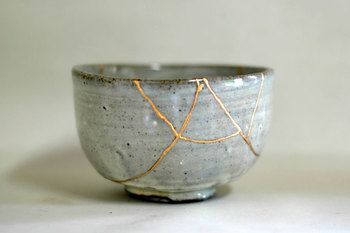 Do not bet if you can’t take a rout
Do not bet if you can’t take a rout And yet, losing is an inevitable fact of life. Moreover, it requires more mastery than success, it is painful and it is at least as dangerous as winning**. Both wining and losing are things to pay a price for, without paying too much.
If you are not ready to pay what it takes for winning and the cost of losing, you are too weak to start taking risk in the first place. Worse, even if all you want is to keep things as they are, to preserve the precious links with people you cherish, the simple, unforgiving truth is that what you don't have the courage to lose, you cannot keep.
This sounds like platitude - most proven wisdom does - but paradoxically, it is deep truth, surprising for many: a bad loser is not of the winners. So, you better learn to lose properly as a part of learning to win. For this, it is useful to know in advance what to do when and while you lose. And afterwards.
The simple life-saving truth to keep in mind is that you do not need to perish each time you fail something. A fall is not the end of the world. It may be the end of something but there is always something else coming after it. In fact, loosing some and wining some is the sign that you are still alive.
The wheel will keep turning, there will be many other ups and downs, as long as you live. You may therefore chose to learn how to take advantage from the occasions of failing; meanwhile, in the short term, losing with grace and courage will not only ease the hurt or help you diminish and even stop the damage, but also - as a surprising collateral gain - build up your credibility and the respect from other people. That in turn is the substance of self-respect and future success.
*
Defeat, not victory is when solid quality shows. If you are strong and able to take a distance while you lose, "If you can meet with Triumph and Disaster and treat those two impostors just the same" [1], people will grow confident that there is someone inside you, a person, one capable to win later.
The strong and clever and the skilled will become aware, then acknowledge promptly, stop the part of harm that depends on them and start immediately what is needed to repair or do better, at least not to do worse. Say “yes, I was wrong” or “yes, you are stronger”, “I am sorry, please excuse me!” Even foes respect this.
Prevent the flood, just say “Stop!", swiftly. "This does not work." "This dream was delusion. Let us do better.” Or, in real danger, don't say anything, just leave the place carefully, now. If needed, run! Do not collapse! Try another life; when you cannot change things out of your power, you can always change yourself.
What people do in important occasions tends to a pattern and becomes ritualised. If you understand this, you will know how to take your part in such a customary event. The act of losing is among other things a ritual of burial, of renouncing and regret, of writing off what you invested from your heart. Turn it into, a rite of parting. Do not allow it to be reduced into a ceremony of demise or degradation. Go beyond that punishment. A rite must be completed properly, with the right roles played by the parties, the expected moves and symbols; or it will not work. If you fail to finish, close, end, put to rest what failed, you would carry the burden forever. Unfinished business sticks to the mind for years and the cup of loss not emptied to the dregs remains bottomless.
Draw then a dignified line, offer a respectful rite of passage from what was, conspicuous for the persons involved, start a new chapter.
Losing can be valuable in more that one way.
"Good losing" is additionally a unique occasion of learning and growing from error. And proving that you do so.
The slip, the crack, the fall are authentic, critical experiences, and what you understand now you will not forget. Such learning becomes part of who you are and steels you. This is the kind of hurt of which Nietzsche wrote " ...What does not kill me makes me stronger."[2]
Some scars and wrinkles give one distinction and show that you have experience with survival, like a seasoned warrior. You are not born yesterday, you have a history of resilience behind you. They mean that you are of the ones who go to war or up Everest and come back too.
Subtle cultures are able not only to absorb loss but also to artfully value it. We have much to learn from them. The Japanese art of mending broken objects by filling the cracks with gold turns the pot more beautiful because of having been broken.
The quitter who abandons the work of understanding, and just hops away elsewhere like a grasshopper, gains nothing, only remembers loss, humiliation, bitterness, unfinished business and hatred.
Be clear though, skilful losing is not giving in, not cowardice but ability to adapt.
Resilience
Skill in a time of loss means acknowledging painful truth, facing it, not giving up; it combines courage, humility and patience with superior understanding: untiring resilience in following your deeper or higher course; like the water of Tao, temporarily evaporated into clouds, or frozen or muddied, which will hover or lie dormant as long as needed, without sterile struggle, but which will flow without fail, at the first occasion when the way is open, it’s natural course to where it belongs .
* Do not misunderstand me; indulging to lose, particularly in small things, forming a victim habit, is the way towards becoming a typical loser. To be someone rather than a weak nobody, it is best practice not to let pass the many losses to which we are invited by our own fault or inattention or by so many circumstances. Particularly the minor ones. If the matter is reasonable, make a habit to repost, to come back and insist - within the limits of good taste - until you get what you want. This habit is formative of resilience and precious in time, to win.
** and thus rising the envy and the hate of the mediocre
[1] Rudyard Kipling, If
[2] Frederic Nietzsche, Twilight of the Idols or How to Philosophize with a Hammer, Maxims and Arrows, 8

 RSS Feed
RSS Feed